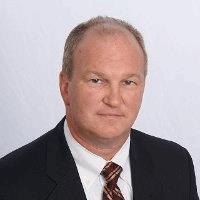Leadership Lessons From Oil Patches To Biopharma Plants

By Louis Garguilo, Chief Editor, Outsourced Pharma

From the oil patches of Wyoming to biomanufacturing in southern California, this is a tale of living your career, and the essence of leadership.
“There’s a recurring theme of including people, taking calculated risks, learning about yourself, and being damn stubborn,” says David Enloe, President and CEO at Ajinomoto Althea, Inc. “Maybe not quite in that order.”
Enloe, who winds his tales like the Texan he is, but with a softening southern California delivery, starts by saying he got his degree in accounting because his high school basketball coach – an accountant by day – had a big house and great car. “It was no good reason to select a career,” he says.
Or maybe it was. Today as much as ever we need to look up to and celebrate success. In fact, nowadays Enloe is a speaker to both high school and college students (e.g., University of Alabama, San Diego State, Rice University). Mostly, his lessons flow from a retelling of his career. “I talk about pathways, and also that it’s okay to not know what the heck you want to do at that age. You’re probably not supposed to.”
Outsourced Pharma readers of all ages will also benefit from some of that retelling.
Looking For Biotech, But Struck Oil Instead
 Enloe may have looked the part of an accountant in the mid-1980s, when he worked in Houston for Arthur Andersen & Co., the biggest accounting firm in the world at the time. But a bit more self-realization (other than wanting a big house and nice car) started to inform him differently.
Enloe may have looked the part of an accountant in the mid-1980s, when he worked in Houston for Arthur Andersen & Co., the biggest accounting firm in the world at the time. But a bit more self-realization (other than wanting a big house and nice car) started to inform him differently.
“I felt like I was watching other people play the game of business,” recalls Enloe. “I was keeping the statistics, and Monday-morning quarterbacking. I had to find a way onto the playing field.”
One of Arthur Anderson’s clients was an early biotech. “I found biotech fascinating. I was assigned to a venture capital firm to help place valuations on their life-science investments. It was a new world at the time.”
However, a more traditional part of Houston won out first. “The energy business was all around me,” he says. One company particularly kept calling – Baker Hughes (Centrilift). Some former University of Texas and Arthur Anderson colleagues had ended up there. “It was all about relationships, not the energy industry,” says Enloe. “So in the job interview, I asked: ‘Can a guy go from internal audit into operations, or even sales?’ The answer was nobody’s ever done that, but it doesn’t mean you can’t. I put my hands up like a touchdown and said, ‘I’ll take the job.’”
Before he knew it, Enloe’s playing field became Casper, Wyoming. He was now responsible for an oil company’s equipment plant in the hinterlands.
Let Them Build It, And They Will Come (Around)
Enloe, surrounded by “rugged oil-company lifers,” was responsible for expanding and reconfiguring a large facility. “These guys were just waiting for the college boy to fail,” says Enloe, before turning more serious, “but my most important lesson in people – and leadership – happened up there.”
He had a hunch that those workers, many who had been there for decades, had never been asked their opinions about optimizing their facility. Throughout a Sunday night, Enloe made to-scale cutouts of each piece of equipment, which he laid out in the current configuration. The next morning he addressed the employees.
“Everybody here knows I don’t know how this shop ought to be configured,” he began. “You do. So I’m leaving these cutouts here. On Friday, wherever the equipment is, that’s what we’ll do.”
“I was scared to death,” recalls Enloe. Monday and Tuesday the workers just walked by. “But at the very end of Tuesday, Greg Hushman – I’ll never forget him – walked over and moved a piece.”
“Then it was on. The next days they were moving things all around. For 16 years, one guy had to walk back and forth across this big shop floor getting parts that were all over the place. Now somebody was asking them.”
Enloe draws out his lesson: “They started out not trusting me as far as they could throw me … until we built it exactly how they said. Our productivity shot up; morale went way up. In the end, it was about inclusion, and trust. I earned theirs, and they mine.”
Changing The Mission
Enloe next reached for another career goal: To work abroad. He took a three-year position in Indonesia with Baker Hughes, as the general manager for a division in Southeast Asia.
“I was too young and unqualified, but someone thought to give me a shot,” says Enloe. He now faced a situation where a competitor dominated the region. Enloe began to focus on a small facility his company had on an island just outside Singapore, which repaired and reconditioned their equipment. “One day I asked the guy running the plant if he could repair our competitor’s equipment, too. He thought a minute and said, ‘I don’t know why not!’”
Today, Baker Hughes has employees working on all types of equipment there, and, says Enloe, it leads to sales of new equipment. “It turned out not to be the dumbest idea I’ve ever had.”
On a visit back to the U.S. during that time, a chance encounter brought Enloe back to a familiar fork in the road. “I ran into the person that I had worked with for that biotech client,” explains Enloe. “I bumped into him randomly in a football stadium in Austin, among 80,000 people.”
Back To Bio
Long story short, as a result, at the age of 31, “with two kids and another on the way,” Enloe quit his job to become the first employee of Introgen Therapeutics. In so doing, he joined the start of the gene therapy revolution.
“We had to figure out how to manufacture. We were using viral vectors, and there wasn’t an effective supplier of viral-based products. We had little idea what we were doing,” says Enloe, “but it was a blessing. We were too unqualified to say, ‘You can’t do that.’”
What they did anticipated the technologies that today have advanced much of biomanufacturing. “People say necessity is the mother of all invention, and I say poverty and naivety helps, too.”
Here’s what Enloe recalls. “We actually put a clean room into an HMO clinic, which probably had eleven-foot ceilings. Well, you can’t do that. But we had to. There was no such thing as disposables, but we couldn’t afford a water system, so we used disposables. Not because it was a trend, but because that was the only choice we had.”
An emerging trend that Enloe did meet up with was outsourcing. Introgen received a call from a biotech that had heard they were “pretty good at making a virus.”
“I had no idea there was such a thing as a dedicated contract manufacturing organization,” says Enloe, “or somebody asking, ‘Can I pay you money to use your excess capacity while you’re struggling?’”
“I still have a copy of that first check,” he says proudly.
Another call came from a company called Biogen. A few calls later, and Introgen was going public. “We were rocking and rolling. We had a partnership with what is now Sanofi. We went from being a little biotech not able to outsource to becoming an outsourcing manufacturer.”
Enloe got board authorization to spin out part of the company to create a CMO. “I don’t know that anybody believed I would actually be able to accomplish this, but they believed they should let me try.”
Seems we’ve heard that before. But what happens next teaches us about leadership when failure sets a boulder on the road to success, in our concluding article.
-----------------
David Enloe, President & CEO of Althea Ajinomoto, has been a panelist and participating member of Outsourced Pharma Conferences since our inception. Readers can meet him and other industry executives at Outsourced Pharma San Diego, August 23-24.
